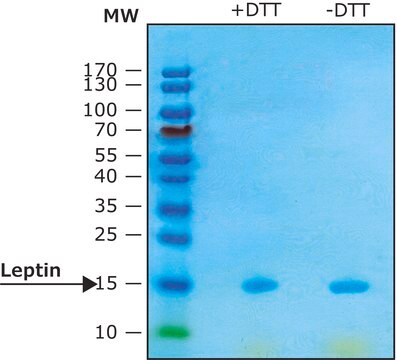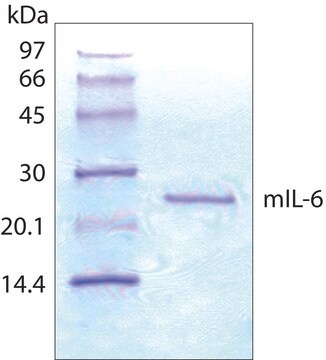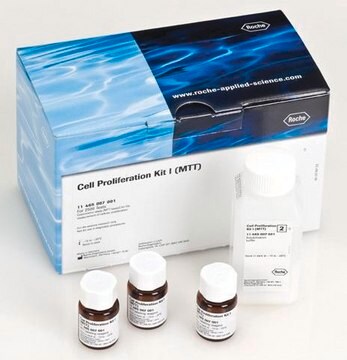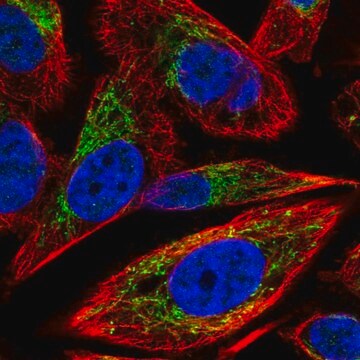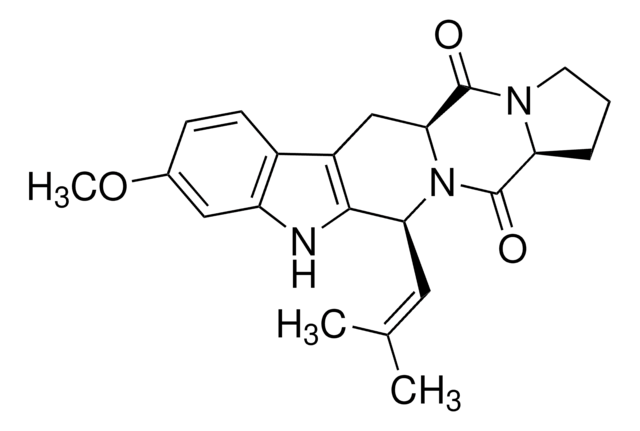SRP6257
ADIPOQ/Adiponectin/ACRP30 human
recombinant, expressed in HEK 293 cells, ≥92% (SDS-PAGE)
Synonyme(s) :
ACDC, ACRP30, ADIPOQ, APM1, Adiponectin, GBP28
About This Item
Produits recommandés
Source biologique
human
Produit recombinant
expressed in HEK 293 cells
Étiquette/Marqueur
6-His tagged (C-terminus)
Essai
≥92% (SDS-PAGE)
Forme
lyophilized powder
Poids mol.
calculated mol wt 25.4 kDa
observed mol wt 28-33 kDa (DTT-reduced. Protein migrates due to glycosylation. Glu 19 is the predicted N-terminus.)
Conditionnement
pkg of 10 μg
Impuretés
<1 EU/μg endotoxin (LAL test)
Numéro d'accès UniProt
Conditions d'expédition
wet ice
Température de stockage
−20°C
Informations sur le gène
human ... ADIPOQ(9370)
Catégories apparentées
Description générale
Actions biochimiques/physiologiques
Forme physique
Reconstitution
Code de la classe de stockage
11 - Combustible Solids
Classe de danger pour l'eau (WGK)
WGK 3
Point d'éclair (°F)
Not applicable
Point d'éclair (°C)
Not applicable
Faites votre choix parmi les versions les plus récentes :
Certificats d'analyse (COA)
It looks like we've run into a problem, but you can still download Certificates of Analysis from our Documents section.
Si vous avez besoin d'assistance, veuillez contacter Service Clients
Déjà en possession de ce produit ?
Retrouvez la documentation relative aux produits que vous avez récemment achetés dans la Bibliothèque de documents.
Notre équipe de scientifiques dispose d'une expérience dans tous les secteurs de la recherche, notamment en sciences de la vie, science des matériaux, synthèse chimique, chromatographie, analyse et dans de nombreux autres domaines..
Contacter notre Service technique
